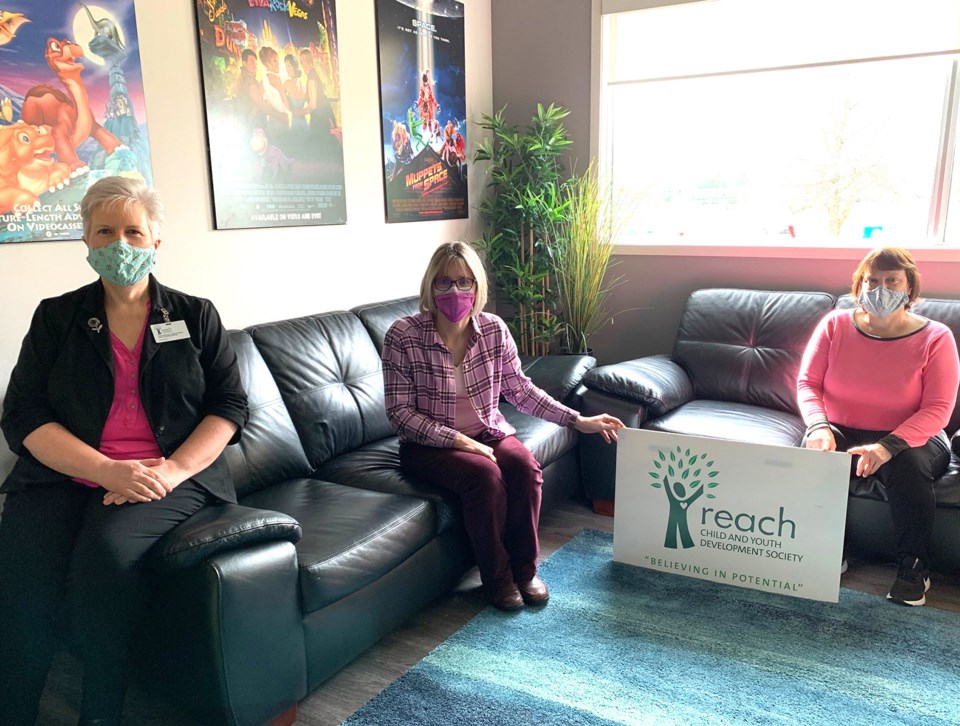Mental Health has been affected in an unprecedented way by the coronavirus pandemic. COVID-19 has exacerbated pre-existing anxiety in children and youth with needs. Examples would be worries about going into the community, losing friends or catching the virus. Challenging behaviours experienced by children with developmental disabilities have also increased due to stress caused by the pandemic. This has created many referrals as parental ability to cope is being severely tested.
To address these needs, Reach Child and Youth Development Society counsellor Yvonne McKenna welcomes Miriam Elfert and Kelly MacGregor to the counselling program.
“So happy to have a team,” said McKenna. “We can shorten the waitlist for service as well as collaborate together.”
This expansion is made possible in part by support from United Way of the Lower Mainland COVID-19 Emergency Community Support Fund funded by the Government of Canada.
“For children with neurodiversity or extra needs and their parents, this is an exceptionally challenging time,” added Reach development manager Kristin Bibbs. “It is critical that we are able to provide counselling services when needed most and we are incredibly grateful for this support from the Government of Canada and United Way of the Lower Mainland.”
Elfert and MacGregor bring many years of experience with families who have children with autism and extensive knowledge of supports available. Using the skills learned from other programs in a mental health capacity is working well for both. Counselling sessions are offered largely by phone or video at this time. As well as being safer, an advantage of virtual delivery is that families who may not have a car do not have to travel to receive service. Some in-person service delivery is offered based on need.
The Reach counselling program serves Delta, Surrey and Langley.


